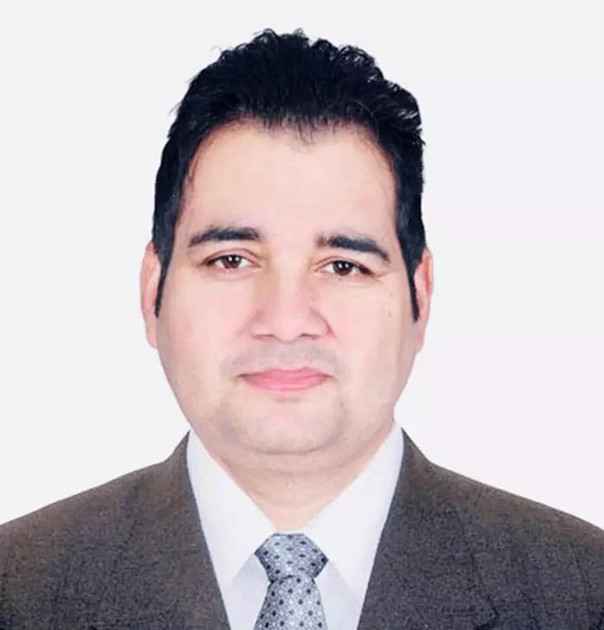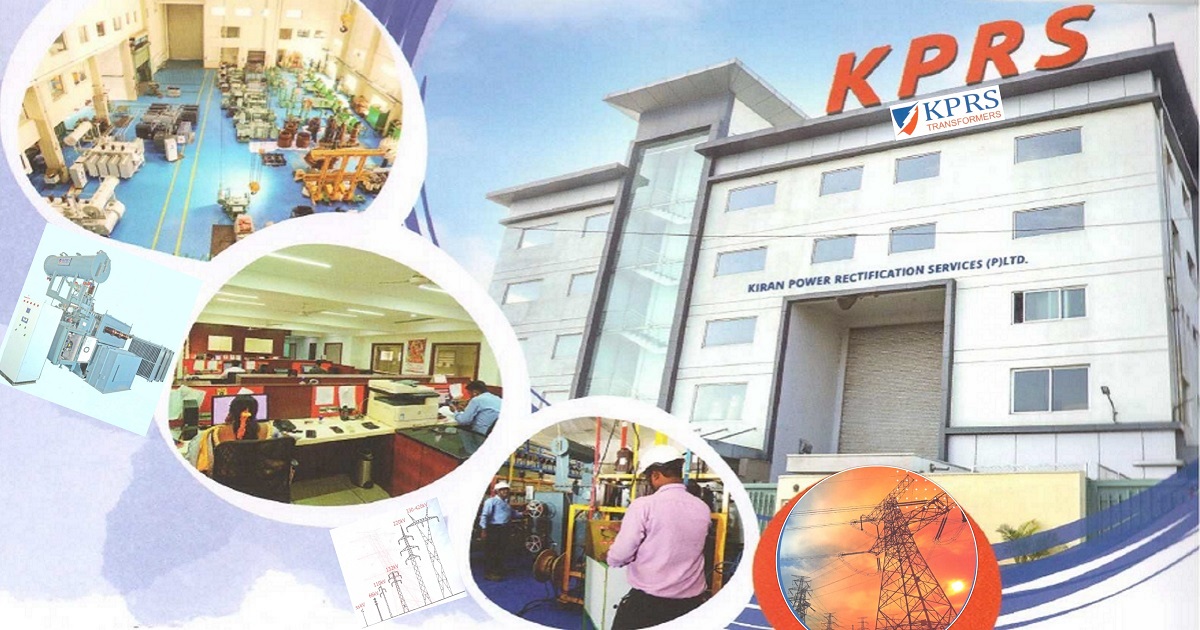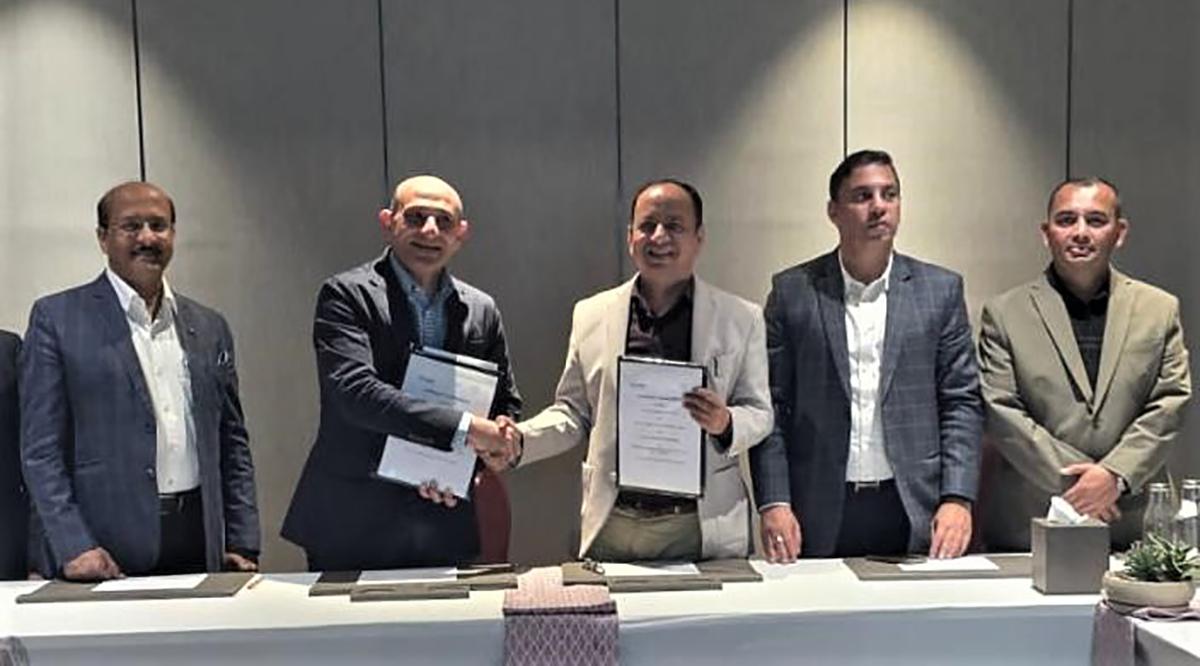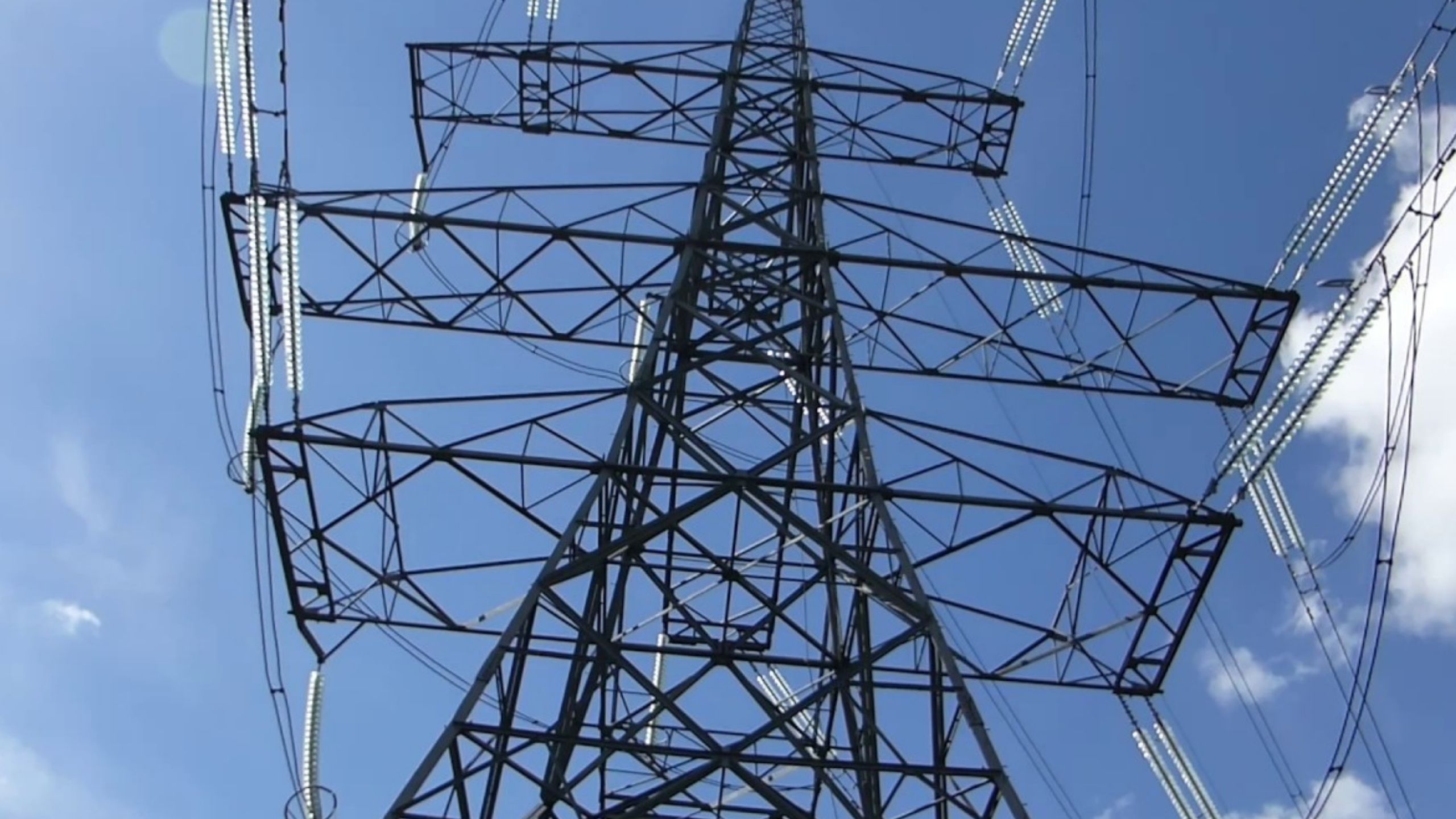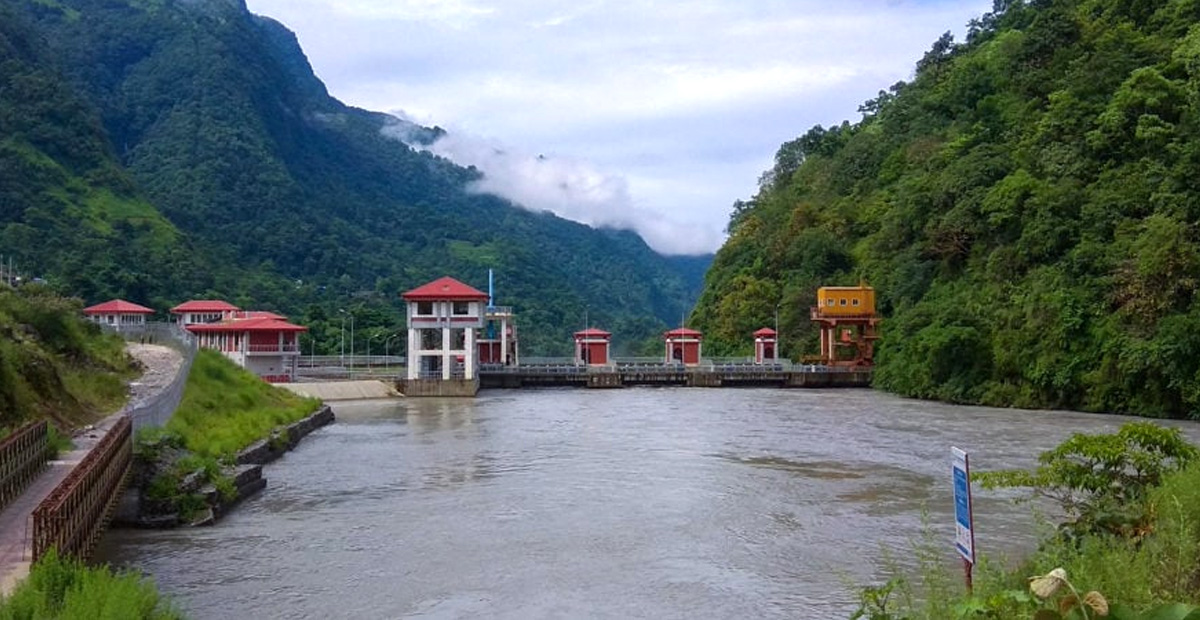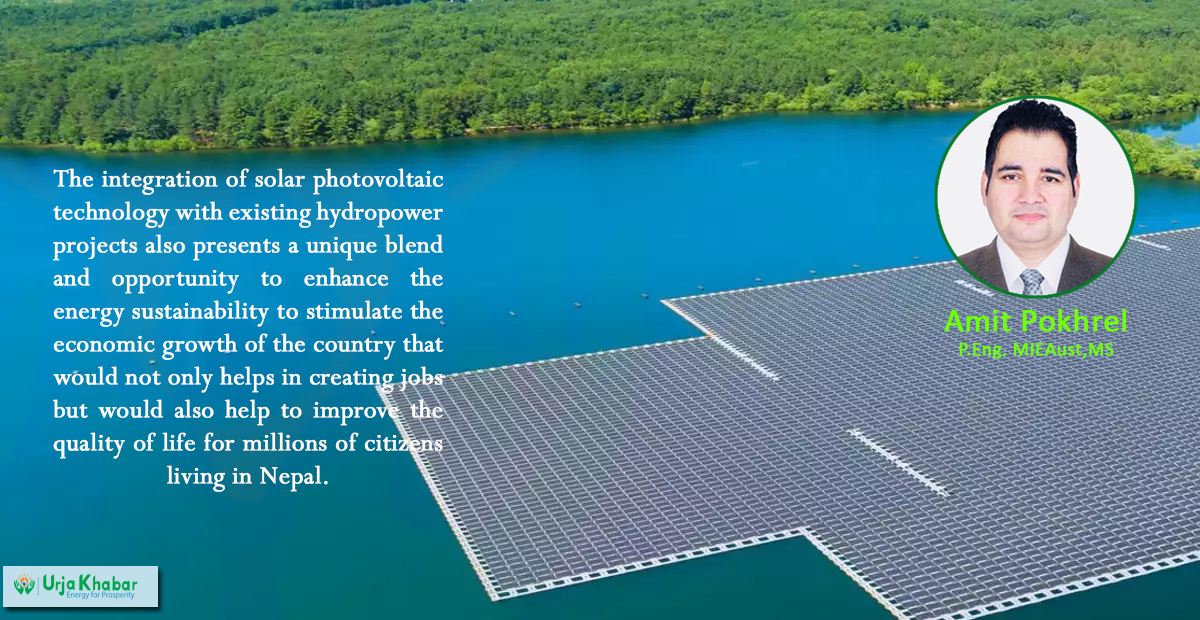Energy Update
Implementing Code of Ethics:
Engineering Sustainability to meet crucial UN Sustainable Development Goals
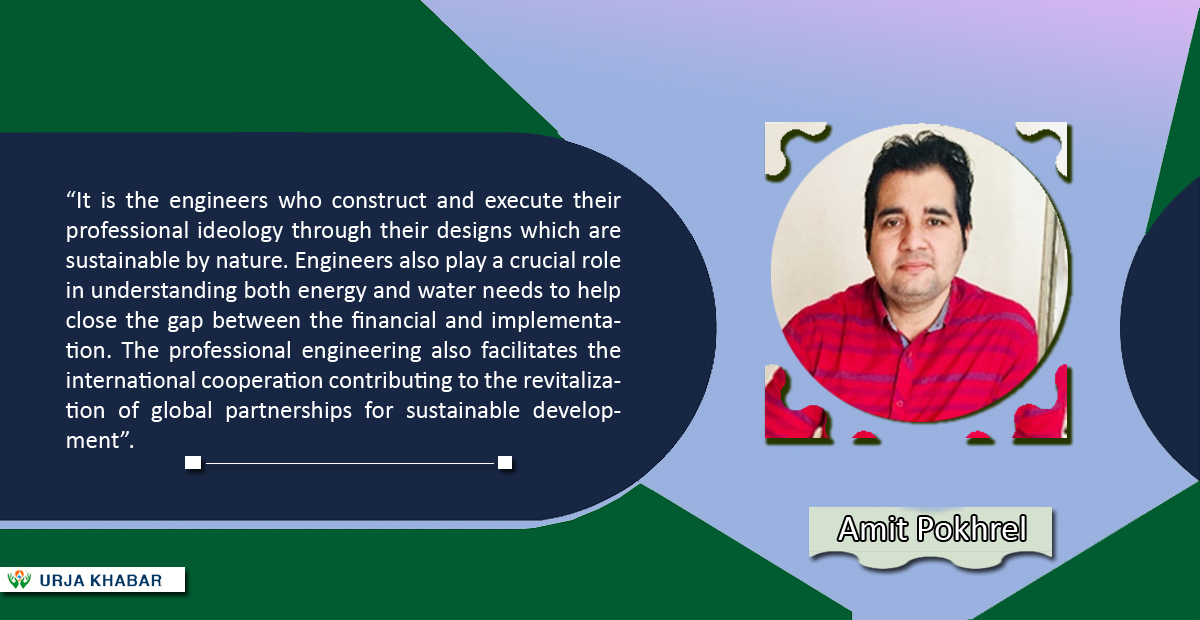
Kathmandu; Engineers now have a clear vision of their role and accountability in contributing to the sustainability of emerging cities and communities in pursuit of the United Nations' Sustainable Development Goals. There are currently 17 SDGs, followed by the Nationally Adopted SDGs declared by all United Nations Member States in 2015 in response to the emerging call for action from all developed and developing countries in a global partnership.
The Sustainable Development Goals (SDGs) address a wide range of global issues, including climate change, degradation of the environment, inequalities, poverty, wealth, peace and equity. As such, Professional Engineers play a vital and essential role in achieving the sustainability objectives. They strive to improve the well-being, health and safety of the population, with minimal exploitation of natural resources and a focus on the environment and sustainability of resources.

In order to maximize societal value and minimize environmental impacts, professional engineers are responsible for making decisions and providing top-notch options and solutions. Due to the detrimental effects of environmental pollution, depletion of resources, rapid population growth, and damage to our ecosystems, there are some critical concerns that require professional engineers to take a broader view that includes sustainable development goals.
Therefore, engineering skills are the utmost necessary which were in demand which include clear water and sanitation for all (Goal 6), availability of sustainable energy sources (Goal 7), creating strong and resilient infrastructure (Goal 9) and liveable cities (Goal 11). Fortunately, there are other goals such as responsible consumption and production (Goal 12) or quality education (Goal 4) will also deepen on key engineering skills even if this not immediate obvious for the society in future.

It is argued that, with such a wide scope of application, the engineering community must take immediate action in order to reach the critical milestones and work together to address some of the world's most pressing global challenges. However, there are still queries as to how engineers can help the world reach these critical objectives without taking immediate action to address such urgent issues that have impacted the entire globe due to the effects of climate change and the degradation of the environment, as well as other factors that are having a detrimental effect on the global society. We are comprised of engineers with diverse backgrounds, working across the globe in various industries and with extensive experience in the management of various types of projects.
Even while we talk a lot about principles, ethics, and social responsibility that are only aligned on paper, there is no common platform to communicate our regional and geographic concepts and was never applied for improved outcomes in a country like Nepal. We must make sure that we adopt this strategy in our community in order to make it self-sufficient, and we must do so at all regional levels in order to establish the community, foster economic growth, and enable the use of sustainable means, where skills are the crucial component, we must develop for the next generation.
There are many methods to find solutions, but one of the greatest ways is to share knowledge, make policies, and improve existing policies so that they are focused on achieving sustainable development goals. One of the largest risks to human civilization and the environment is possible social unrest, so it is important to use our professional engineers and intellectual faculties to improve society.
As a professional engineer, it is my first and foremost responsibility to uphold the Code of Ethics and conduct myself in a way that fosters and promotes sustainability. Since most developers have concentrated on the energy sector to support social imbalance, poverty alleviation, and social upliftment for the socially disadvantaged areas based on the SDGs modality, Nepal has made remarkable progress in recent years in terms of fostering economic growth and revenue generation. As citizens, we are aware that the Code of Ethics, which will be followed by all morally upright members of the world community, includes sustainability.
The Code of Ethics encourages all engineers to interact with the public and other stakeholders in a responsible manner, and to conduct engineering activities that promotes the health and safety of the public and the environment. It also encourages engineers to balance the requirements of the current with the requirements of the future. However, following the Engineers Australia Code of Ethics has been a new concept for me, as Nepal have not adopted their own code of ethics practice and have never considered it. Engineers Australia has updated its general terms to promote the careers of prospective engineers around the world. I am proud to work with adopting the code of ethics being as a professional member of Engineers Australia who have completed numerous development projects in Nepal. We are interconnected in so many ways, yet nurturing is a rudderless vessel.
In the current situation in Nepal, the sustainability issues have been addressed through the implementation of the IFC policy in order to promote and sustain Nepal's hydropower development. To further motivate engineers to comprehend their key duties and to further improve sustainability, we will strive to balance our community's implementation of development ideology by identifying the discrepancies between environmental, social, and economic conditions to reduce inequalities and social disparities, thus pushing and encouraging new generations to fulfill their needs, thus engaging in a development strategy that targets all the development zones to address the essential key of the Sustainable Development Goals (SDGs) so that we can construct a better society with an emphasis on an equitable access and opportunity.
The trend of globalization varies between geographic areas, where globalization presents a significant opportunity for professional engineers to disseminate a variety of experiences and best practices. It is essential to recognize the leadership and influence of engineers in the pursuit of sustainability. It is engineers who create and implement their professional ideology in their designs that are inherently sustainable, and it is their ideology that evolves without disregarding the preservation of future generations' quality of life. Sustainable development is based on two concepts: needs and constraints imposed by the current state of technology, and current and future demands.
The role of professional Engineers is to maximize the value of their work towards the development of a sustainable world. They are also essential in identifying areas of opportunity and tracking progress towards SDG 6 through the collection of data for agreed indicators and the processing and analysis of data sets to generate actionable information on progress. Furthermore, engineers should effectively and transparently communicate the information generated by their work to policy makers and government officials in order to ensure that decisions are data-driven. Consequently, engineers are responsible for explaining often intricate Water issues in comprehensible terms and for helping the general public to trust science. Furthermore, engineers are essential in understanding both water resources and water need in order to bridge the gap between financing and implementation. Finally, professional engineering facilitates international collaboration contributing to the revival of global partnerships in the field of sustainable development (SDG 17).
Today’s development challenges are dynamic, interconnected puzzles of multidimensional risk that require systemic solutions. Multilateral cooperation is vital in addressing these shared challenges that cross boundaries of geography and time. No country has yet achieved the combination of very high human development with a light ecological footprint. The impacts of climate change and biodiversity loss are growing. In this complex, uncertain landscape, the SDGs and the Paris Agreement offer clarity of purpose and a way forward. Delivering results at the speed and scale needed to reach Agenda 2030 depends on close partnerships with a diverse range of actors working towards common goals.
The key principle of the Ethics mainly focus on demonstrating the ability, practice competently by exercising the leadership role so to promote sustainability to foster the health ,safety and wellbeing of the community and the environment so to balance the needs of the present with the needs of the future generations in identifying sustainable outcomes consider all options in terms of their economic, environmental and social consequences and aim to deliver outcomes that do not compromise the ability of future life to enjoy the same or better environment, health, wellbeing and safety as currently enjoyed.
In conclusion, I am of the opinion that the only way Professional Engineer will be able to make a significant contribution to the implementation of Sustainable Development Goal 6 is if they adopt a human rights-driven approach. Professional Engineering can be seen as a driving force in the pursuit of SDGs Goal 6, which will provide a platform for learning from our experiences, doing things differently, and striving towards greater collective objectives. We utilize our expertise and knowledge for the betterment of the community, developing engineering solutions to a more sustainable future. As a member of the Professional Engineering community, we are bound by the General Regulations on Competency, Continuous Professional Development and Code of Ethics, as well as accepting responsibility for our conduct in accordance with Engineers Australia's disciplinary regulations.
The engineering or regulatory bodies in Nepal shall follow the same pattern to promote ethical and good practices that will help create a non-discriminatory code of ethics that will be used in both the public and private sectors. Most of the top engineers and administrative bodies have forgotten that they are just as responsible for the failure of development projects as they are responsible for the unethical and illegal practices that are taking place. Unfortunately, the current reality is that the Code of Ethics isn't being followed seriously and people are getting away with it.
Pokhrel is a Professional Engineer and MIEAust Professional working in Nepal for the Golyan Group, as Project Contract Expert for a variety of Energy Projects, ranging from 10 MW up to 306 MW.
Reference
1. Sustainable Development Goals | United Nations Development Programme (undp.org)
2. UNDP-Strategic-Plan-2022-2025_1.pdf
3. https://www.engineersaustralia.org.au/
4. Sustainability | Free Full-Text | Sustainable Development Goals: A Powerful Framework for Embedding Ethics, CSR, and Sustainability in Management Education (mdpi.com)
5. Ethics and the UN sustainable development goals: the case for comprehensive engineering | Request PDF (researchgate.net)
6. Ethics and the UN Sustainable Development Goals: The Case for Comprehensive Engineering - PMC (nih.gov)
7. Achieving the 17 Sustainable Development Goals (azocleantech.com)
8. Engineering Council (engc.org.uk)
9. 10-311 Role of Sustainable Dr.pdf (pecongress.org.pk)
10. Ethics in Sustainability – Sustainability Methods and Perspectives (pressbooks.pub)
11. What is Sustainability and why is it so Important? - TWI (twi-global.com)
12. Sustainability Science: Ethical Foundations and Emerging Challenges | Learn Science at Citable (nature.com)
13. The roles of multinational enterprises in implementing the United Nations Sustainable Development Goals at the local level - Monida Eang, Amelia Clarke, Eduardo Ordonez-Ponce, 2023 (sagepub.com)
14. Policy statement 418 - The role of the civil engineer in sustainable development | ASCE
15. The four pillars of sustainability (futurelearn.com)
16. Microsoft Word - Madrid Symposium Report v4 (Diana).doc (best.eu.org)
17. National guideline on sustainable development and environmental stewardship for professional engineers (peo.on.ca)
18. Professional Social Responsibility in Engineering | IntechOpen
19. Revisiting port sustainability as a foundation for the implementation of the United Nations Sustainable Development Goals (UN SDGs) | Journal of Shipping and Trade | Full Text (springeropen.com)
20. 019104_SDG_Compass_Guide_2015.pdf (sdgcompass.org)
21. agenda-sdg-uc3m-english-version.pdf
Http://www.linkedin.com/in/eramitpokhrel
Conversation
- Info. Dept. Reg. No. : 254/073/74
- Telephone : +977-1-5321303
- Email : [email protected]




